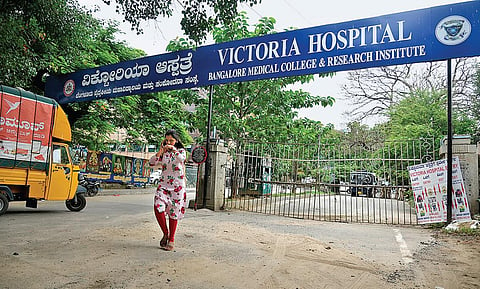

BENGALURU: The mortuary at Victoria Hospital in Bengaluru, which has the highest capacity of 48 cadaver cabinets in Karnataka, needs infrastructural improvement. Doctors at the Forensic Medicine Department said, the mortuary building is very old and requires revamping. The building often calls for leakage repairs and even prior to monsoon seasons to avoid any ceiling leakage during heavy rain.
However, in the future, the building might have to be demolished to set up a new infrastructure. The mortuary caches 1,000 unidentified bodies yearly, of which, 800 are natural deaths, and the remaining are accidental, with the railways contributing the most.
Dr S Venkata Raghava, professor and HOD of the Forensic Medicine Department said, “Most cases are seen in the limits of Bangalore City Railway Station, Upparpet police station, Kalasipalyam and KR Market bus stand. Suicide cases on railway tracks and accident cases where people fall on the track while boarding a train or while crossing platforms are also seen regularly.” In addition, road accident cases, with two-wheelers being the most affected, have risen in Bengaluru, he said.
He urged people to be more careful on the roads as car drivers tend to be safer than bike riders. 92 cases of road accident deaths were reported at the hospital since March. The doctors also highlighted that often nobody comes to identify these people in the mortuary. On Sunday, of the 23 deaths at the hospital, 12 were unidentified. About 100 such cases are seen every month.
Currently, there is not much lack of space in the morgue, considering the fact that identified bodies only stay overnight, and the unidentified bodies remain for around 20 days to a month.